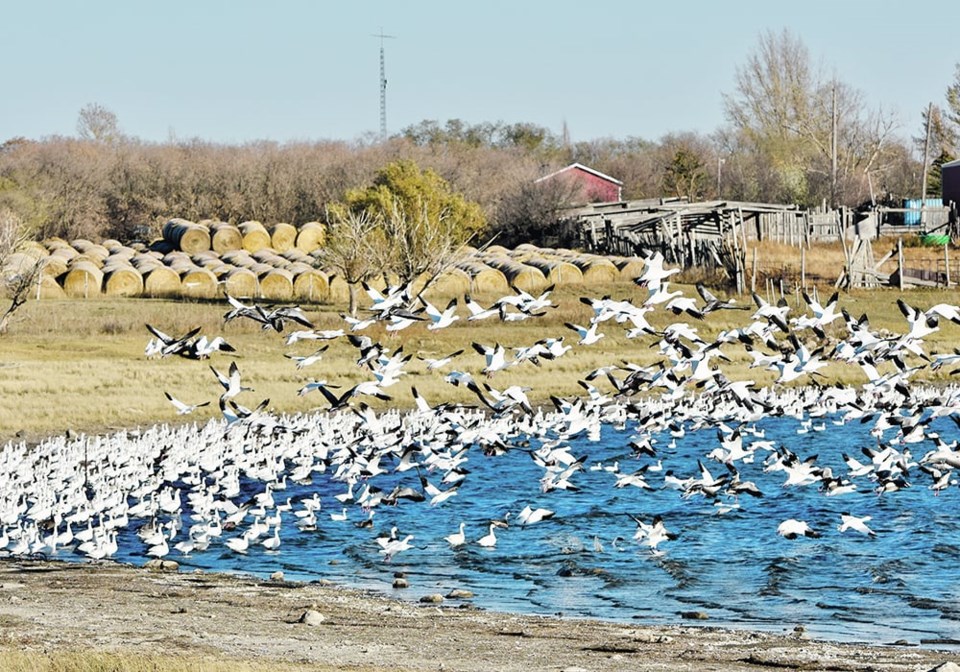WESTERN PRODUCER — Government officials say Canada is prepared for potential animal disease outbreaks, even though there were delays in dealing with some cases of avian influenza.
Speaking to MPs during the standing agriculture committee’s first meeting on animal biosecurity, chief veterinary officer Dr. Mary Jane Ireland said stringent safeguards are in place, including science-based import controls at the international border, to keep diseases out of the country.
Avian flu, however, likely arrived with migratory birds before domestic commercial flocks were affected.
Conservative agriculture critic John Barlow said he heard from farmers saying they were frustrated because the Canadian Food Inspection Agency was slow to respond. He said Canada had avian flu outbreaks in 2004 and 2014.
“You’re supposed to be on farms within 48 hours (and) we were hearing within 10 days in some cases,” he said. “Do you have the resources necessary to handle these outbreaks? Was there something that was unexpected with the most recent flu outbreak?”
Philippe Morel, vice-president of operations at CFIA, said the agency has the resources it needs to respond.
He told the committee that about 10 percent of agency staff were deployed to avian flu response.
There were some concerns, he said, about carbon dioxide supply to euthanize birds in commercial poultry flocks.
“We have a system where we prioritize which establishment needs to be depopulated, based on risk,” Morel said. “We were close to having not enough gas, but we were able to depopulate.”
He said the farms that waited the longest for depopulation were those identified as the lowest risk.
“When we arrive on site and we see 30 percent, 40 percent of birds that are dead, it’s on top of the list. When we only see some signs of stress in some birds, we can wait because the birds are not suffering,” he explained.
Morel agreed waiting 10 days is not ideal and that only happened in two or three situations last year.
He said collaboration with industry and provinces helped secure essential gas supply, especially in British Columbia, where they had to destroy domestic birds on many farms at the same time.
Barlow said while 10 days might be acceptable to the agency, the wait time “is a massive mental health issue” for producers.
“I would think that is also an opportunity that CFIA should look at is allowing or working to build a framework that will allow the farmers themselves to take on that euthanization,” he said.
Barlow raised concerns the foot-and-mouth disease vaccine bank announced in the recent federal budget may not go ahead if the provinces don’t agree to help fund it.
“We are very confident and determined it will happen,” replied Tom Rosser, assistant deputy minister of the market and industry services branch at Agriculture Canada.
Barlow also asked about traceability amendments that worry agricultural fairs, 4-H clubs and others that don’t have the manpower to take on animal identification.
Ireland said consultations are underway and CFIA is open to feedback, but she said in the context of biosecurity, traceability is critical.
“The ability to understand where animals have been, where they are going, and what other animals they have interacted with is essential when we have animal disease in this country to be able to trace and track and see who might be affected,” Ireland said, adding that the amendments increase the ability to do that.
NDP agriculture critic Alistair MacGregor said most biosecurity incidents result from people who are authorized to be on a farm. He asked whether the voluntary biosecurity guidelines for some sectors should be made a legal requirement.
“We can set national biosecurity standards and then producer organizations can tailor them to their own needs, but every individual producer needs to think about their own facility and what makes sense for their particular operation,” Ireland said.
Avian flu has underscored the importance and challenges of maintaining strict biosecurity.
Meanwhile, Barlow’s private member’s bill to amend the Health of Animals Act to make it an offence to enter animal operations without permission received second reading in the House of Commons May 1. The bill is a result of incidents in B.C. and Alberta in 2019 when protesters entered barns.
Barlow said people could still protest but outside the farm’s gate.
“When they cross that line onto private property and put the health of animals at risk, as well as the mental health of our farm families at risk, there has to be a line there,” he said.
MPs from other parties support the bill in principle, but Liberal MP Francis Drouin said there are concerns about the legal risks with it as currently written. A similar bill died on the order paper before the last election.

